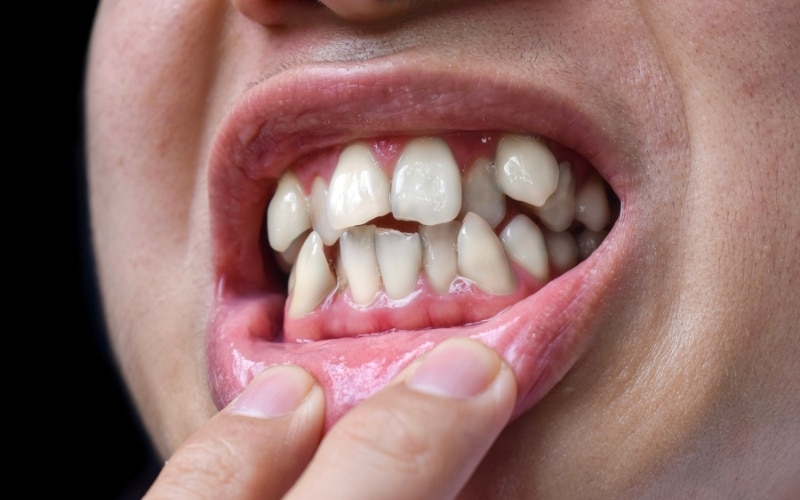ONLINE SCHEDULING AND VIRTUAL CONSULTS AVAILABLE

10 Must-Know Answers to Common Cosmetic Dentistry Questions

Curious about the world of cosmetic dentistry?
You’re definitely not alone!
With so many innovative treatments and options available in 2024, it’s easy to get overwhelmed. Whether you’re considering a dazzling smile makeover or just want to understand the latest trends, knowing the right answers can make a huge difference.
In this blog, we’ll tackle ten essential questions about cosmetic dentistry that everyone should know. From the newest techniques to understanding the cost and effectiveness of treatments, we’ll break it all down for you.
Ready to explore how you can enhance your smile with confidence?
Let’s dive in and discover the answers to your most pressing cosmetic dentistry questions!
- What Are the Latest Trends in Cosmetic Dentistry in 2024?
Cosmetic dentistry has evolved dramatically in recent years. Today, treatments go beyond traditional methods, offering more precise and less invasive options. Techniques like laser whitening, digital smile design, and 3D printing have revolutionized how we achieve that perfect smile. These advancements make procedures quicker, more comfortable, and often more effective.
Emerging Technologies and Techniques in 2024
New technologies continue to push the boundaries of cosmetic dentistry. For instance, digital impressions and computer-aided design (CAD) allow for highly accurate and customized treatments. Additionally, minimally invasive procedures, such as no-prep veneers and tooth-colored fillings, cater to patients looking for less invasive options with great results.
- How Does Teeth Whitening Work, and Is It Safe?
Teeth whitening works by breaking down the stains on your teeth using bleaching agents like hydrogen peroxide or carbamide peroxide. These agents penetrate the tooth enamel and break apart the stain molecules, resulting in a brighter smile.
Comparison Between Professional and At-Home Treatments
Professional whitening treatments, administered by a cosmetic dentist, often yield quicker and more dramatic results compared to at-home kits. While at-home products are more affordable and convenient, they may not deliver the same level of whitening or speed.
Safety Considerations and Potential Side Effects
Both professional and at-home whitening can lead to temporary sensitivity. However, professional treatments tend to have better monitoring and control, minimizing potential risks. It’s essential to follow instructions carefully and consult your dentist if you experience discomfort.
- What Is the Difference Between Veneers and Bonding?
Veneers are thin shells of porcelain or composite resin that cover the front surface of teeth. They are ideal for correcting significant imperfections like chips, gaps, or discoloration. Bonding, on the other hand, involves applying a tooth-colored resin to repair minor flaws and reshape teeth.
When to Choose Each Option Based on Cosmetic Needs
Choose veneers for a long-lasting, high-quality solution that addresses multiple cosmetic issues. Bonding is suitable for more straightforward repairs and can be completed in a single visit. Discuss with your cosmetic dentist Plantation to determine which option best suits your needs.
- Are Cosmetic Dentistry Procedures Painful?
Pain levels can vary depending on the cosmetic procedure. For example, teeth whitening generally causes minimal discomfort, though some patients experience temporary sensitivity. Procedures like dental veneers and bonding may cause mild discomfort, but local anesthesia usually manages this effectively. More invasive treatments, such as dental implants or gum contouring, may involve more discomfort during and after the procedure, but the pain is typically manageable with prescribed medications.
Pain Management Options
Dentists use various pain management techniques to ensure comfort during cosmetic procedures. Local anesthesia numbs the treatment area, minimizing pain during the procedure. Sedation options, such as nitrous oxide or oral sedatives, can help relax anxious patients and reduce discomfort. Post-procedure pain can often be managed with over-the-counter pain relievers or prescribed medication. Always discuss pain management options with your cosmetic dentist to choose the best approach for your needs.
- What Are the Benefits of Invisalign Over Traditional Braces?
Invisalign uses clear, removable aligners to straighten teeth, offering a discreet and comfortable alternative to traditional metal braces. The aligners are custom-made and gradually shift teeth into place without the discomfort of metal brackets and wires.
Comparing Comfort, Appearance, and Treatment Duration
Invisalign aligners are less noticeable and often more comfortable than traditional braces. They also require fewer office visits. Treatment duration varies but can be comparable to traditional braces, depending on the complexity of the case.
- How Do I Know if I’m a Good Candidate for Cosmetic Dentistry?
Good candidates for cosmetic dentistry are generally in good oral health and have realistic expectations. Issues like gum disease or untreated cavities should be addressed before proceeding with cosmetic treatments.
Pre-Treatment Assessments and Consultations
A thorough examination by your cosmetic dentist will determine your suitability for specific procedures. This assessment typically includes evaluating your dental health, discussing your goals, and creating a personalized treatment plan.
- What Should I Expect During a Cosmetic Dentistry Consultation?
During your consultation, your dentist will discuss your cosmetic goals and review your dental health. Expect a detailed examination, possibly including X-rays or digital imaging, to assess your needs and plan appropriate treatments.
Questions to Ask Your Cosmetic Dentist
Ask about the experience and qualifications of the dentist, the expected outcomes, and the costs involved. Inquire about the different treatment options, recovery times, and any potential risks or side effects.
- Are There Any Risks or Complications Associated with Cosmetic Procedures?
While cosmetic procedures are generally safe, risks include temporary discomfort, sensitivity, or complications from anesthesia. Each treatment comes with its own set of potential issues, so it’s crucial to discuss these with your dentist beforehand.
How to Minimize Risks and Ensure Safe Outcomes
Choose a reputable cosmetic dentist and follow pre- and post-treatment instructions carefully. Regular follow-up visits and good oral hygiene will also help minimize risks and ensure a successful outcome.
- How Long Do Cosmetic Dental Treatments Last?
The longevity of cosmetic treatments varies. Veneers can last 10-15 years, teeth whitening results may last up to 2 years, and dental implants can last a lifetime with proper care. Each treatment has specific maintenance requirements to ensure long-lasting results.
Tips for Maintaining Results and Extending the Lifespan of Cosmetic Work
Maintain good oral hygiene, avoid stain-causing foods and drinks, and follow your dentist’s advice on care and maintenance. Regular dental check-ups will help ensure that your cosmetic treatments remain in top condition.
- How Does Cosmetic Dentistry Affect Oral Health?
Cosmetic dentistry can positively impact oral health when procedures are performed by a skilled professional. For instance, dental implants and crowns can restore function and prevent further damage to surrounding teeth. However, some treatments, like aggressive tooth whitening or poorly fitting veneers, may lead to temporary sensitivity or potential damage if not properly managed. It’s crucial to choose procedures that not only enhance appearance but also support overall dental health.
Balancing Cosmetic Goals with Dental Health
Balancing aesthetic improvements with dental health is essential. Cosmetic procedures should be chosen based on a thorough evaluation of oral health needs. Ensure that any treatment plan addresses both cosmetic goals and underlying dental conditions. Regular check-ups and following your dentist’s recommendations can help maintain both your smile and your oral health. Always discuss the potential impact of any cosmetic procedure on your overall dental health with your dentist.
Cosmetic dentistry offers transformative solutions to enhance your smile and boost your confidence. With advancements in treatments and technology in 2024, it’s crucial to stay informed about the latest options, understand how they work, and address any potential concerns. By asking the right questions and working with a professional, you can achieve beautiful results while maintaining optimal oral health. Remember, a well-informed approach ensures both aesthetic and functional success in your cosmetic journey.





